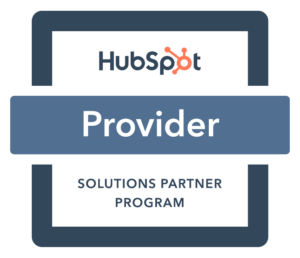I’m a big fan of the Black Swan Group. It’s the consultancy owned by Chris Voss, who wrote Never Split the Difference. Chris applies his learnings from being a hostage negotiator to help people with any negotiation.
A lot of BSG clients are executives and business people. Their methods work well because a lot of our interactions with people in business is a negotiation. Sales people and sales teams have great success using their methods.
I strongly believe marketers also have great success using their methods. In our lead generation copy. As well as in our customer surveys and interviews.
In negotiation BSG advocates using questions to uncover information. Negotiation for them is about uncovering what the other side wants and needs, not persuading them to your side. They suggest that our questions be “what” and “how” questions. And to avoid asking “why” questions.
People find direct why questions a challenge.
People find direct why questions a challenge. For a lot of people, a direct why question comes across as aggressive. It doesn’t invoke a good answer. So don’t start your surveys with “Why did you buy from us rather than a competitor?”
For marketers, this can feel contrary. Why is important in marketing because it gets at the heart of the emotion of decision making. So we want to lean into it. We all need to know our own why. It speaks to purpose. (I’m also a believer in Simon Sinek’s start with why.) It’s key to understand align with the customer’s why. The best company-customer relationships are grounded in a shared purpose.
So start with Why. Just don’t directly ask why. Reframe to figure it out.
“What” questions reveal problems.
“What” questions reveal problems. Understanding customer problems is a big part of understanding the customer. What questions really help us investigate problems. You’re likely to get richer fuller answers if you reframe why questions to what questions.
- What was it about our product that influenced your decision to buy it today?
- If you could change just one thing about our product, what would it be?
- What do you like best about buying from us, over buying from our competitor?
“How” questions revolve around process.
“How” questions revolve around process. They get to the heart of experience. They help us to improve our engagement with customers.
- How easy was it to find what you wanted today on our website?
- For the next time, how might we improve our checkout experience?
- How happy were you with our ability to provide you with relevant recommendations?
I also don’t believe in using the word should. It flags for me that there is some rule to be broken. Nothing is ever absolution. So, if you should not ask a why question, when would you ask a why question?
Using hostage negotiation language, BSG group says that you would ask a why question as a proof-of-life question. Ask a why question at the point where you are trying to figure out if there is a real commitment to the business relationship. Or is the customer just kicking tires and will never buy from you.
So consider including a why question a survey or interview that is part of a win-loss analysis. Or the final email in an abandoned cart email sequence. Sometimes better asked in an interview rather than in a survey.
The most important thing to remember when asking any of these questions. Is to ask, pause and listen to the answers. That is where you discover why your customers buy your products from you. Or why not.
Do you like this topic? You might also enjoy these blog posts:
